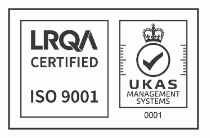The legal industry is still one of those fields yet to experience serious innovation. While the COVID-19 pandemic was a catalyst for the industry and legislation surrounding it to make it more digital-friendly, advancements have been limited.
Legal Technology (LegalTech) is a field which is increasingly being talked about, which is increasing advancements in areas such as document automation, AI-driven legal research, and digital contract management. With trust being a significant hallmark in the industry, it is somewhat understandable that advancements have been limited. However, it should not scare away innovation.

LegalTech addresses challenges related to data security, legal compliance, and client service, driving innovation in how legal work is conducted and delivered. LegalTech is crucial in modernising legal practices while ensuring adherence to ethical and regulatory standards.
The increasing relevance of LegalTech reflects a broader trend toward digital transformation across various sectors. Recent global challenges, such as the need for remote work and the demand for more efficient legal services, have highlighted the limitations of traditional legal practices. This has accelerated advancements in LegalTech, such as AI-driven legal research, automated contract management, and secure digital transactions. LegalTech is essential to modernising the legal industry while ensuring compliance with evolving regulatory standards.
According to Grand View Research, the market size of the LegalTech industry in 2023 was $6.38 billion (€5.70 billion) and is projected to grow at a CAGR of 8.9% from 2024 to 2030. However, by and large, companies in the UK receive the largest share of funding, with a third of the venture funding. EU-based companies are punching below their weight, but there is room for growth in the sector. With the industry traditionally being risk-averse, it takes more time to nudge it forward.
The prevalence of blockchain is also increasingly relevant in LegalTech for its ability to ensure secure, transparent, and tamper-proof records, particularly through smart contracts and legal document management.
The EU offers several funding opportunities that, while not directly focused on LegalTech, are highly relevant to the sector due to their emphasis on advanced digital technologies like AI and blockchain. For instance, Horizon Europe’s Cluster 4 (Digital, Industry, and Space) is designed to support digital transformation across various industries, including but not limited to the legal sector. LegalTech projects that utilise AI for tasks like legal research or blockchain for secure transactions could fit well within the scope of this cluster, even though the funding is not specifically targeted at LegalTech.
How can we help?
If you have a project idea for which you’d like to make use of funding available to bring it to life, then be sure to get in touch. With over 20 years of experience in funding procurement and participation in over 80 successful EU projects to date, AcrossLimits has a dedicated and experienced team that can help you draft proposals and apply to EU funding opportunities. With our expansive network spanning both the private and public sector as well as academia, we’re in pole position to cater to your needs.
To learn more about how we can help you make your project idea a reality, contact us at: [email protected].



